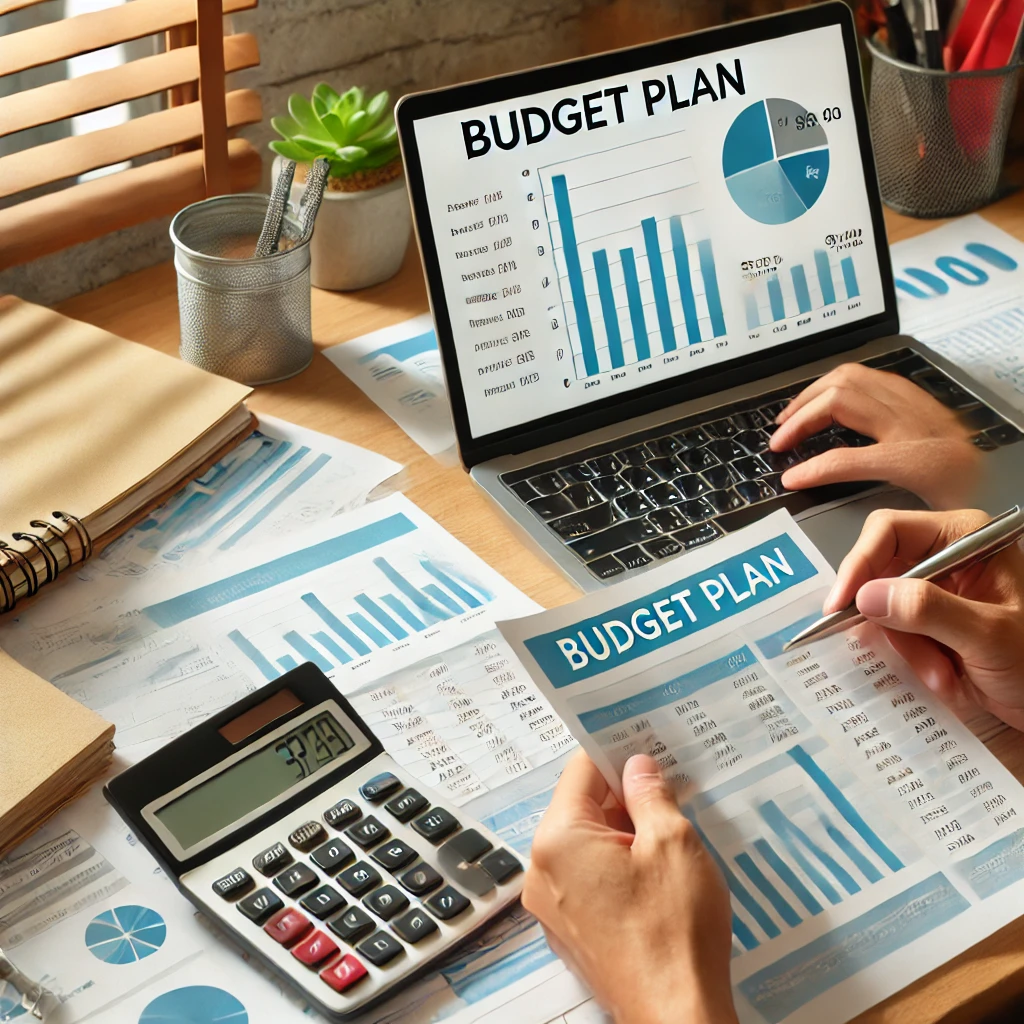Managing money effectively is essential for achieving financial stability and reaching your financial goals. Budgeting is a powerful tool that helps you track your income and expenses, plan for the future, and make informed financial decisions. This article explores the benefits of budgeting and provides practical tips on how to manage your money effectively.
Understanding the Basics of Budgeting
What is Budgeting?
Budgeting is the process of creating a plan to spend your money. This spending plan is called a budget. By creating a budget, you can determine in advance whether you will have enough money to do the things you need to do or would like to do. Budgeting is an essential step towards financial health.
Why is Budgeting Important?
Budgeting helps you control your spending, track your expenses, save money, and avoid debt. It provides a clear picture of your financial situation and allows you to allocate your money in a way that aligns with your financial goals.
The Benefits of Budgeting
1. Financial Awareness
Creating and maintaining a budget increases your financial awareness. It helps you understand where your money is going, which is the first step towards taking control of your finances. By tracking your income and expenses, you can identify spending patterns and areas where you can cut back.
2. Improved Savings
Budgeting encourages you to set savings goals and prioritize them. Whether you are saving for an emergency fund, a vacation, or retirement, a budget helps you allocate funds towards these goals regularly. Over time, these savings can grow significantly and provide financial security.
3. Debt Management
A well-planned budget can help you manage and reduce debt. By allocating a portion of your income towards paying off debts each month, you can make steady progress towards becoming debt-free. Budgeting also helps you avoid taking on new debt by ensuring you live within your means.
4. Better Financial Planning
Budgeting allows you to plan for future expenses and life events, such as buying a house, having children, or starting a business. By setting aside money for these events, you can reduce financial stress and ensure you are prepared for the future.
5. Increased Financial Discipline
Maintaining a budget requires discipline and commitment. Over time, budgeting can help you develop better financial habits, such as avoiding impulsive purchases and prioritizing long-term financial goals over short-term gratification.
6. Peace of Mind
Knowing that you have a plan for your money can provide peace of mind. Budgeting helps reduce financial anxiety by giving you a clear understanding of your financial situation and a roadmap for achieving your goals.
How to Create an Effective Budget
1. Determine Your Income
Start by calculating your total monthly income. This includes your salary, bonuses, freelance income, and any other sources of income. Knowing your total income is essential for creating a realistic budget.
2. List Your Expenses
Make a list of all your monthly expenses. This includes fixed expenses (e.g., rent, mortgage, utilities) and variable expenses (e.g., groceries, entertainment, dining out). Don’t forget to include occasional expenses, such as car maintenance or medical bills.
3. Categorize Your Expenses
Organize your expenses into categories, such as housing, transportation, food, entertainment, and savings. This helps you see how much you are spending in each area and identify where you can cut back if needed.
4. Set Financial Goals
Identify your short-term and long-term financial goals. Short-term goals might include paying off credit card debt or saving for a vacation, while long-term goals could be saving for retirement or buying a home. Setting clear goals gives you a sense of purpose and direction for your budget.
5. Allocate Your Income
Allocate your income to cover your expenses and financial goals. Start with your essential expenses, such as housing, utilities, and food. Then, allocate money towards your financial goals and discretionary spending.
6. Track Your Spending
Keep track of your spending throughout the month to ensure you stay within your budget. Use budgeting apps, spreadsheets, or a simple notebook to record your expenses. Regularly reviewing your spending helps you stay accountable and make adjustments as needed.
7. Adjust Your Budget
Your budget is not set in stone. Life circumstances and financial priorities can change, so it’s important to review and adjust your budget regularly. Make necessary changes to ensure your budget remains effective and aligned with your goals.
Tips for Successful Budgeting
1. Use Budgeting Tools
There are many tools and apps available to help you create and maintain a budget. Popular options include Mint, YNAB (You Need A Budget), and EveryDollar. These tools can simplify the budgeting process and provide valuable insights into your spending habits.
2. Build an Emergency Fund
An emergency fund is a crucial part of any budget. Aim to save three to six months’ worth of living expenses in a separate savings account. This fund provides a financial safety net in case of unexpected expenses or loss of income.
3. Prioritize Debt Repayment
If you have debt, prioritize paying it off. High-interest debt, such as credit card debt, should be tackled first. Consider using the debt snowball or debt avalanche method to accelerate your debt repayment.
4. Automate Savings
Set up automatic transfers to your savings account to ensure you consistently save money each month. Automating your savings makes it easier to build your savings without having to think about it.
5. Review and Adjust Regularly
Regularly review your budget to ensure it reflects your current financial situation and goals. Make adjustments as needed to stay on track and achieve your financial objectives.
FAQs about Budgeting
Why is budgeting important?
Budgeting is important because it helps you control your spending, save money, and avoid debt. It provides a clear picture of your financial situation and allows you to make informed financial decisions.
How can I start budgeting if I’ve never done it before?
Start by tracking your income and expenses for a month to understand your spending habits. Then, create a budget based on your income and categorize your expenses. Use budgeting tools or apps to help you stay organized.
What should I do if I exceed my budget?
If you exceed your budget, review your spending to identify areas where you can cut back. Adjust your budget to account for any changes in your financial situation and make a plan to get back on track.
How can I make budgeting a habit?
Make budgeting a habit by setting aside time each week to review your finances. Use budgeting tools to simplify the process and stay accountable. Regularly tracking your spending and adjusting your budget will help you stay on top of your finances.
How often should I review my budget?
Review your budget at least once a month to ensure it reflects your current financial situation and goals. Regular reviews help you stay on track and make necessary adjustments.
What are some common budgeting mistakes to avoid?
Common budgeting mistakes include not tracking expenses, underestimating costs, not setting realistic goals, and failing to review and adjust the budget regularly. Avoid these mistakes by staying organized and disciplined in your budgeting efforts.
Conclusion
Budgeting is a powerful tool for managing your money effectively and achieving financial stability. By understanding the benefits of budgeting and following practical tips, you can take control of your finances, reduce financial stress, and work towards your financial goals. Start budgeting today and enjoy the peace of mind that comes with knowing you are managing your money wisely.
Sources
- Budgeting Basics – Consumer.gov
- Effective Budgeting Tips – NerdWallet
- Personal Finance Tools – Mint
- Debt Repayment Strategies – Investopedia
- Building an Emergency Fund – Dave Ramsey
By incorporating these budgeting strategies into your financial routine, you’ll be well on your way to managing your money effectively and achieving your financial goals.


